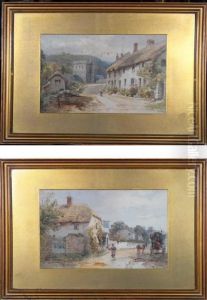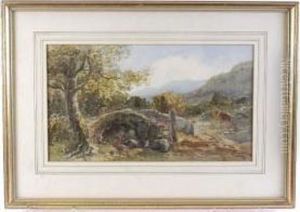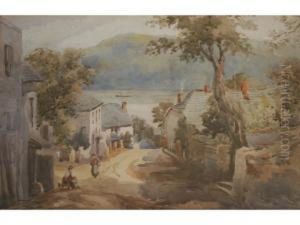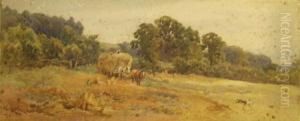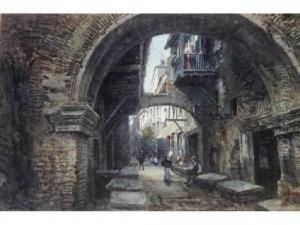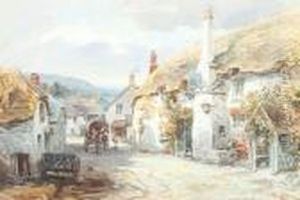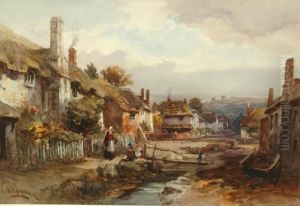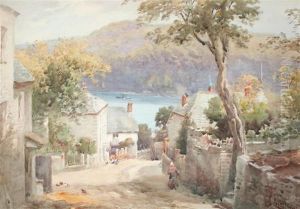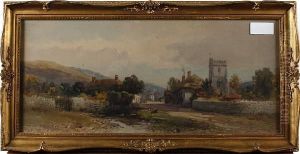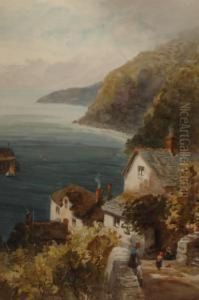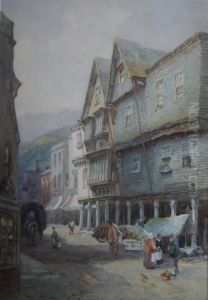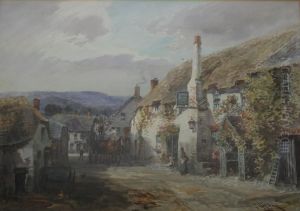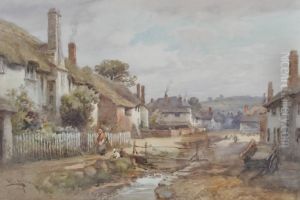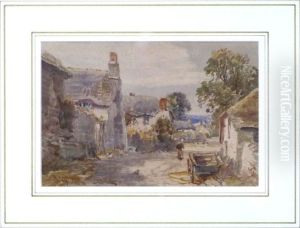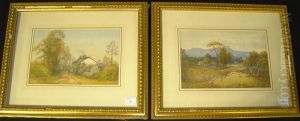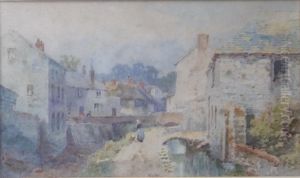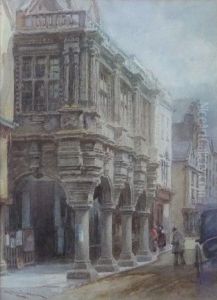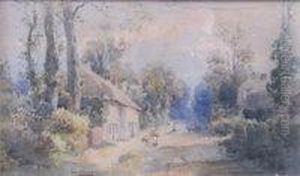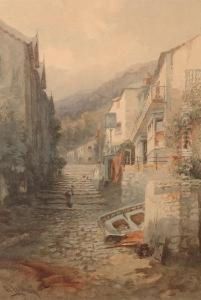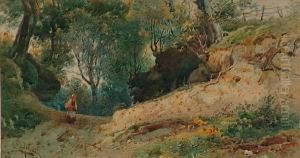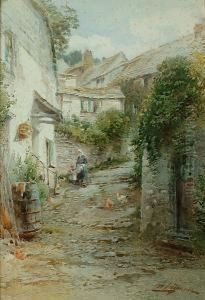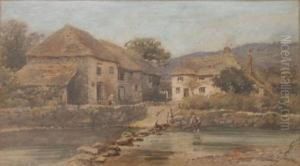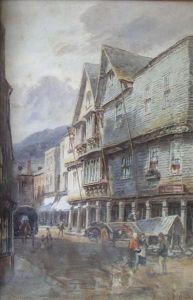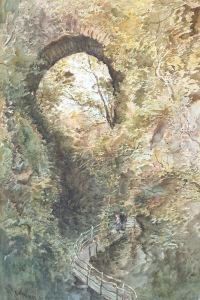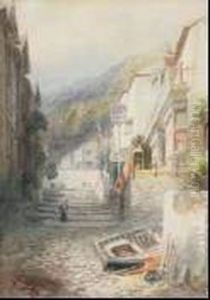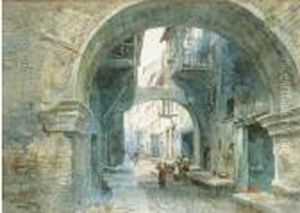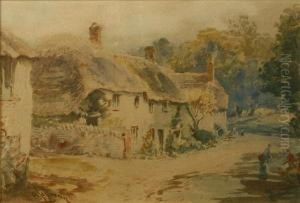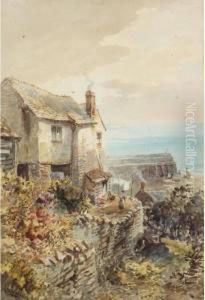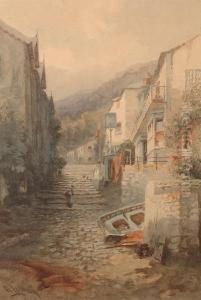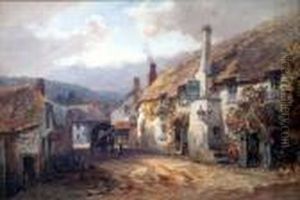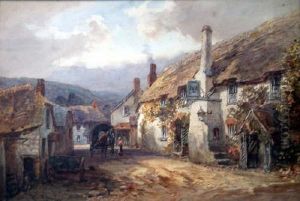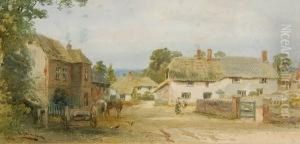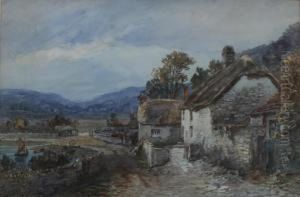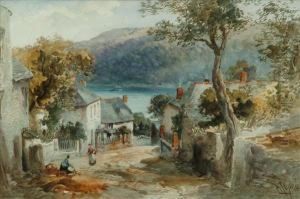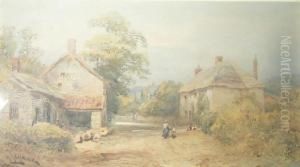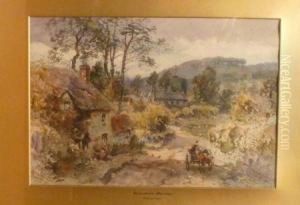Alfred Leymann Paintings
Alfred Leymann was a German painter known for his contributions to the Düsseldorf school of painting, a group that focused on detail, clear form, and narrative content in their work. Born on December 18, 1842, in Bremen, Germany, Leymann showed an early interest in the arts. He pursued his passion for painting by studying at the Düsseldorf Academy, one of the leading art schools in Germany during the 19th century.
Under the tutelage of renowned teachers like Eduard Bendemann and Julius Roeting, Leymann honed his skills in landscape and genre painting. He was particularly attracted to depicting scenes from rural life, often imbuing his works with a sense of tranquility and nostalgia. His style was characterized by a meticulous approach to detail and a rich, yet subdued, color palette, which reflected the influence of the Düsseldorf school.
During his career, Leymann participated in numerous exhibitions and received acclaim for his artistic talents. Aside from painting, he also engaged in teaching, passing on the techniques and principles of the Düsseldorf school to a new generation of artists.
Leymann's contributions to German art were recognized during his lifetime, and his works were collected by various patrons and institutions. However, after his death on November 7, 1914, in Fischerhude, near Bremen, his name, like many of his contemporaries, became less prominent in the canon of art history. Despite this, Leymann's paintings continue to be appreciated by art historians and collectors for their embodiment of 19th-century German Romanticism and their delicate portrayal of the rural world.
